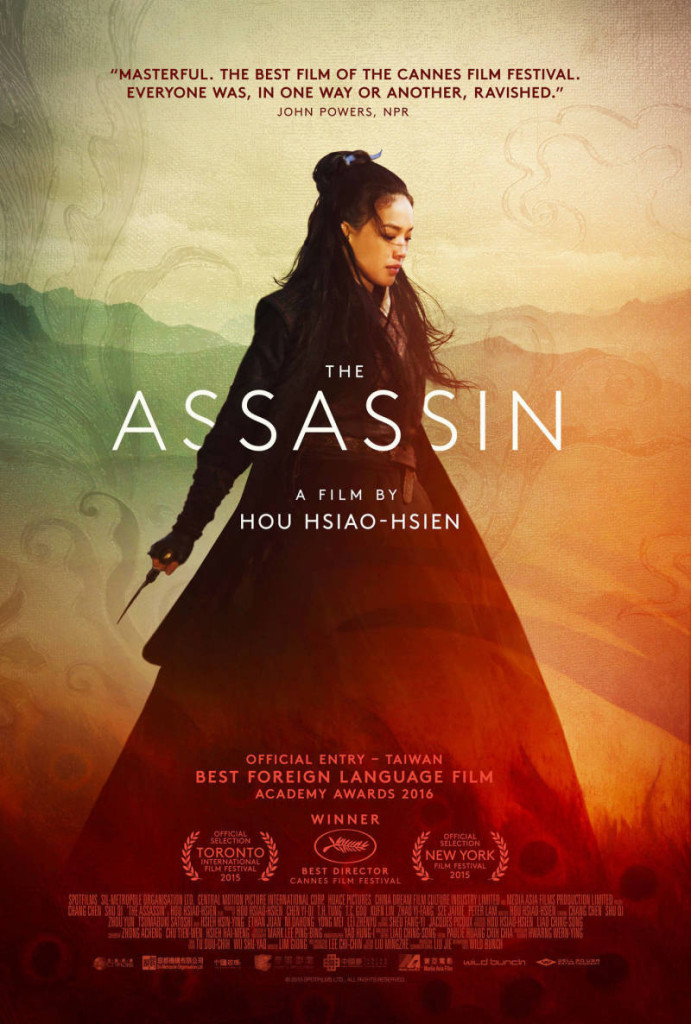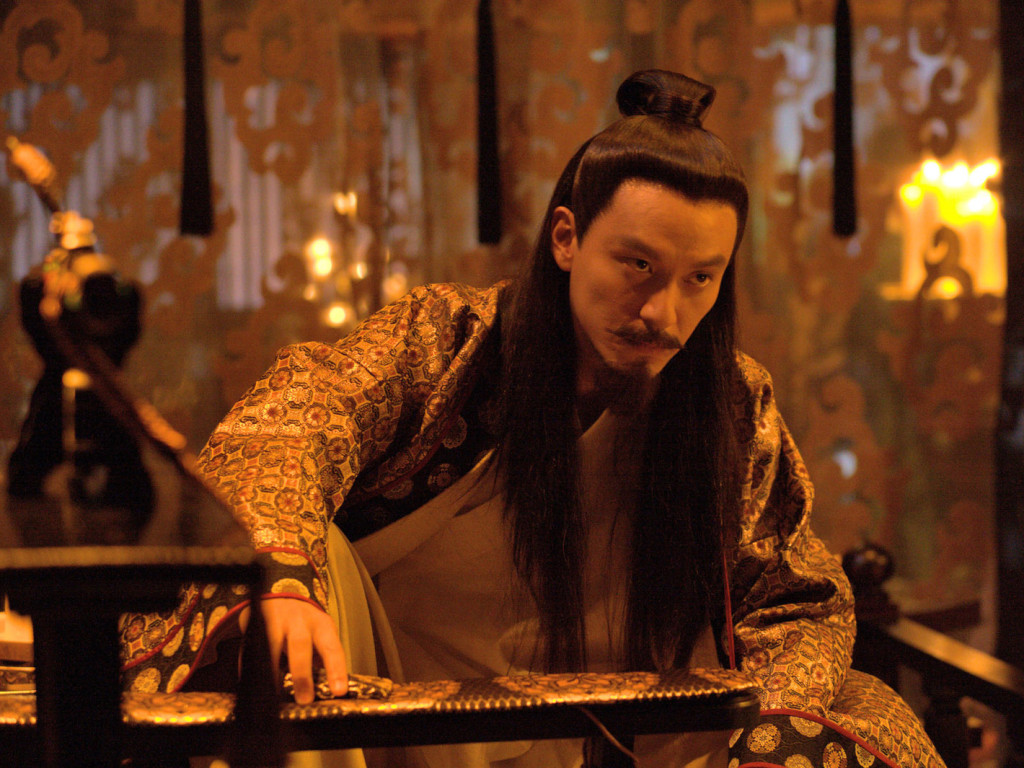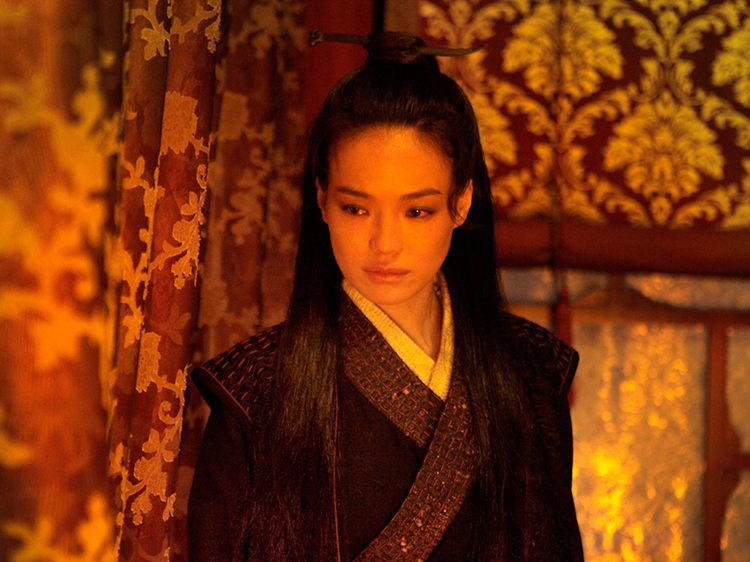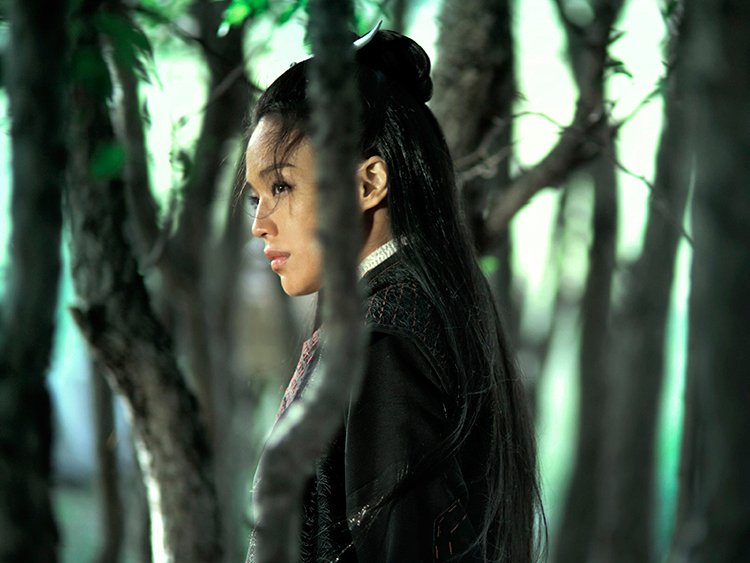Writers: Hou Hisao-Hsien, Zhong Acheng, Chu T’ien-wen, Hsieh Hai-Meng (screenplay), Pei Xing (short story)
Cast: Shu Qi, Chang Chen
Cert: 12
Running time: 107mins
Year: 2015
![]()
The lowdown: Celebrated Chinese director Hou Hsiao-Hsien turns his hand to the wuxia-pien (martial arts) genre for his first film in eight years. But, those expecting House of Flying Daggers or Crouching Tiger, Hidden Dragon may be surprised at what an anti-martial arts film Hou has produced. The plot, a female assassin is sent to kill the man to whom she was once betrothed, is standard fare. Hou’s telling is more focused on costumes and scenery than a compelling story or choreographed combat, meaning it’s pretty to look at but likely to leave scratched heads and soft snores.
The full verdict: Experimental with its colour schemes and shifting screen ratios, The Assassin won Hou Hsiao-Hsien Best Director at Cannes 2015.
But, while his film is frequently a treat for the eyes, it’s dramatically embalmed and likely to trigger many a “long blink” in the audience.
Based on a short story from the 9th century Tang Dynasty, the film sees the young Yinniang (Shu) taken from her home by a nun for training in becoming an assassin.
Angered by Yinniang’s inability to complete missions due to emotional weakness, the nun dispatches her to Weibo province to kill the governor Lord Tian Ji’an (Chang). But, Tian was Yinniang’s first love, and this, plus his wife and family, again causes her to lower her blade.
But, what danger does this place Yinniang in?
Many important events occur off-screen in The Assassin. With protracted segments given to hushed conversations in the political court, holding onto plot threads can be as difficult as the murderous smoke Yinniang tackles in one of the film’s more memorable, albeit still brief, action scenes.
Hou’s preoccupation with social rituals and dress and decor of the period override any interest in narrative coherence, making this stunning to behold, but emotionally cold.
Wuxia-pien and the arthouse can successfully pair. Zhang Yimou’s The Curse of the Golden Flower featured court intrigue and the business of day-to-day governance and made for captivating cinema. Wong Kar-wai’s epic Ashes of Time uses the genre’s trappings for an epic meditation on love, memory, regret and time. With great action to boot.
The Assassin’s chief triumph is it proves sweeping visuals of stunning mountain ranges can still be captured in a 4:3 aspect ratio.
But, overall this is cinematic Night Nurse.
Rob Daniel
Twitter: rob_a_Daniel
[youtube id=”CKFtNsQ78oI”]





